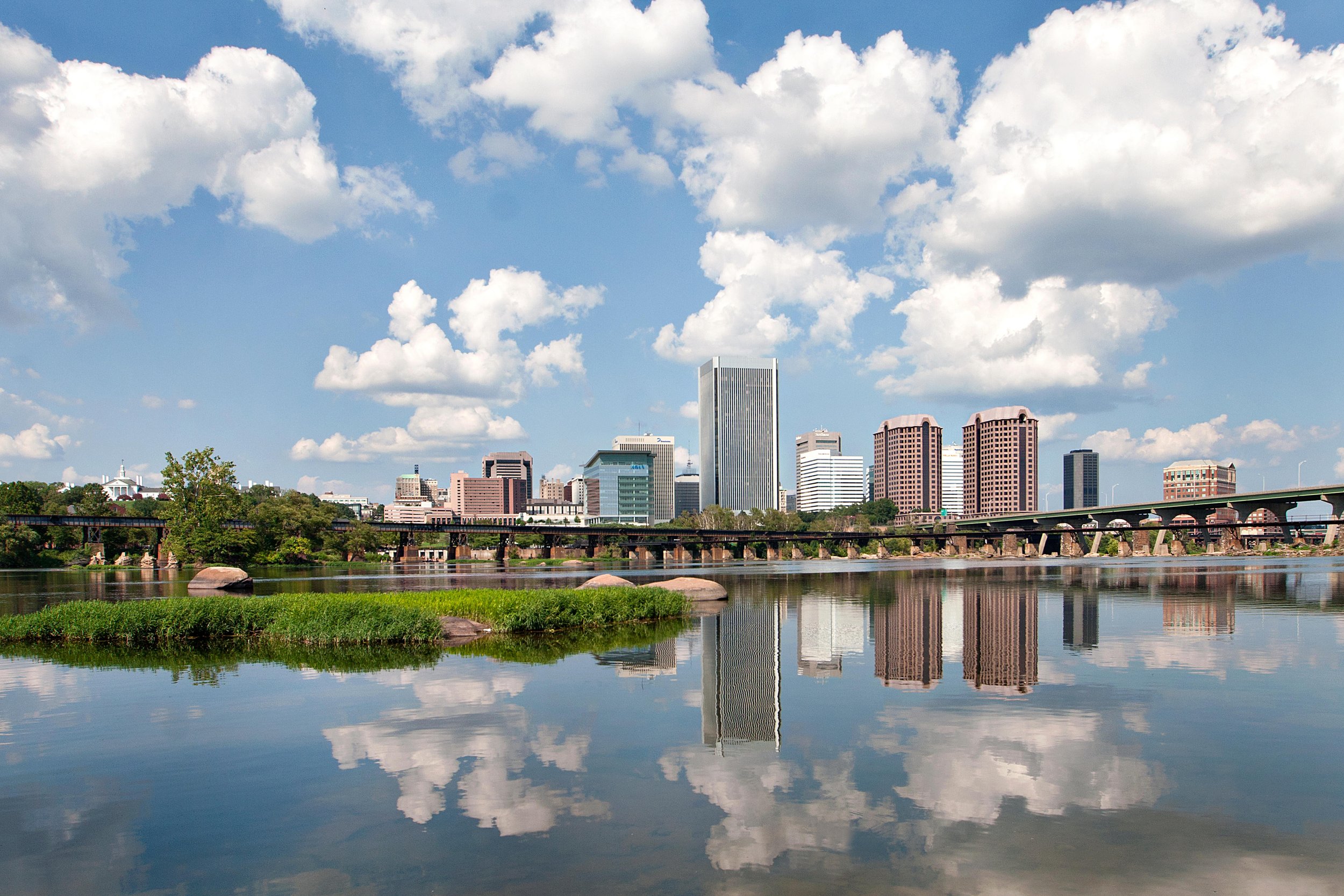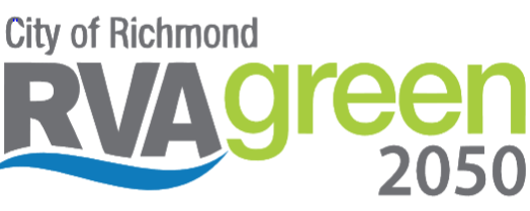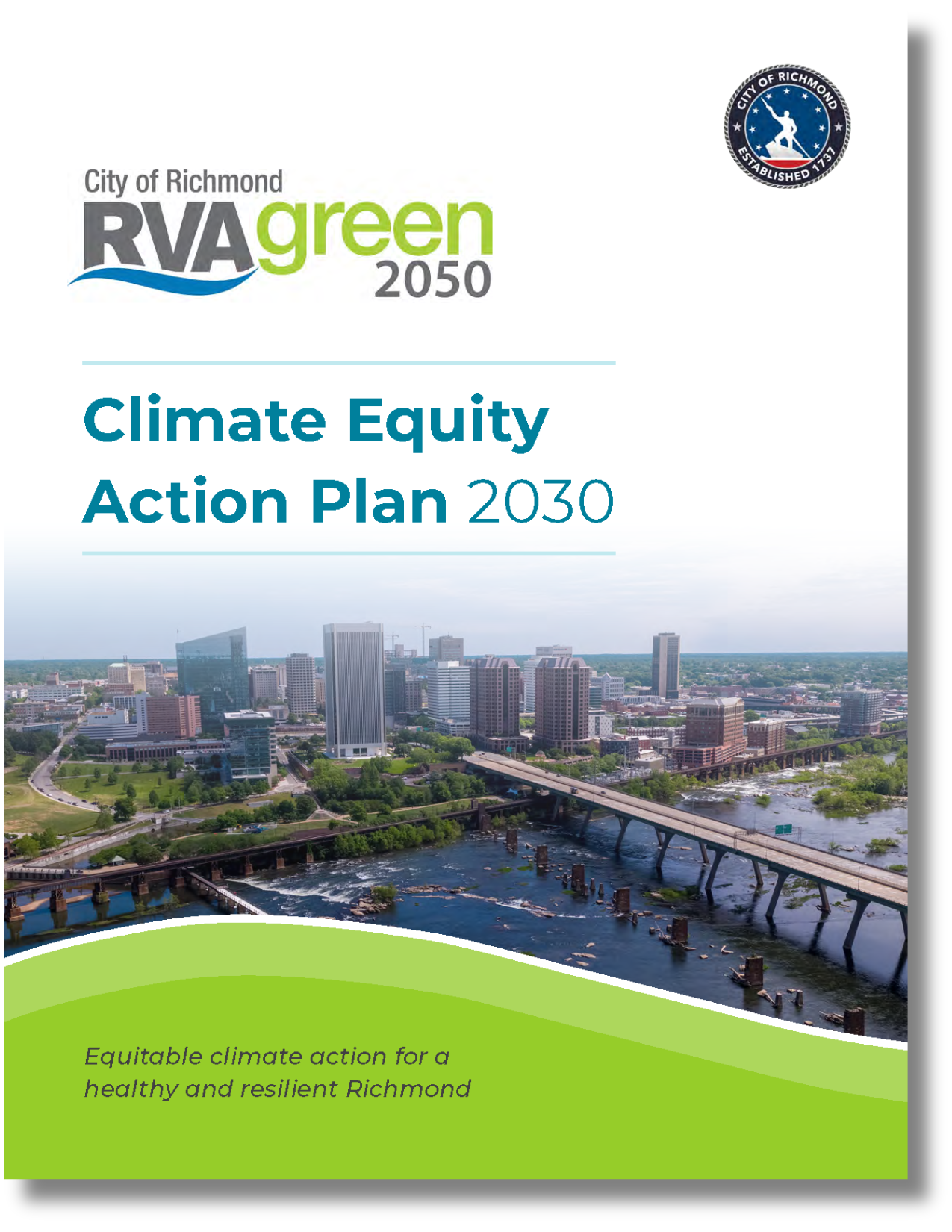
RVAgreen 2050 Plan
RVAgreen 2050: Climate Equity Action Plan 2030 is an equity-centered, community based, integrated climate action and climate resilience plan. It is a roadmap that lays out how to reduce greenhouse gas emissions 45% by 2030, achieve net zero greenhouse gas emissions by 2050 and help the community adapt to Richmond’s climate impacts of extreme heat, precipitation, and flooding.
The Plan’s Vision is that all Richmonders, regardless of their identity or neighborhood, thrive in a climate-resilient and climate-neutral community.
RVAgreen 2050 consists of five Pathways. Each Pathway provides detailed Strategies and Actions that help us reach the stated Goals of the Plan.
Buildings & Energy - Accelerate the equitable transition to healthy, resilient, climate neutral buildings and energy sources.
Community - Create an equitable and resilient Richmond while honoring and ensuring focus on community priorities.
Environment: Invest in resilient, healthy, and equitably distributed natural resources throughout the community to support biodiversity and human well-being.
Transportation & Mobility: Accelerate the transition for all to clean and equitable mobility.
Waste Reduction & Recovery: Foster sustainable methods of waste reduction - wasting less, reusing more.
Read the Plan:
Pathways, Objectives, & Strategies (3 pp)
Entire Plan including Appendices (556 pp)
Plan only (181 pp)
Appendices only (375 pp)
RVAgreen 2050 Framework
Climate Equity Action Plan 2030
Vision
All Richmonders, regardless of their identity or neighborhood, thrive in a climate-resilience and climate neutral community.
Goals
Climate Action: Achieve a 45% reduction in greenhouse gas emissions by 2030 from the 2008 baseline; achieve net zero greenhouse gas emissions by 2050.
Climate Resilience: Prepare for, adapt, and improve Richmond’s resilience to the local impacts of climate change.
Climate Equity: Address climate change in a way that is inclusive of and prioritizes those who are being impacted first and worst by climate change. Lower income populations and communities of color are more likely to live in areas with potential for greater impacts.
Climate Action
RVAgreen 2050 identified strategies aimed at the reduction of greenhouse gas (GHG) emissions that contribute to climate change. These actions focus on slowing and reducing the magnitude of changes in the climate.
Climate Resilience
RVAgreen 2050 strategies are also geared towards climate resilience actions that aim to reduce Richmond’s vulnerability to the impacts of climate change. The data indicates that Richmond will face hotter temperatures, extended heat waves, and more extreme rain events.
Climate Equity
RVAgreen 2050 is centered on equity to address impacts of climate change in Richmond’s most vulnerable communities. Those that live in poverty have fewer resources and receive less support, which reduces their ability to prevent, cope with, and adapt to climate change impacts.
Due to historic and institutional racism, people of color are more likely to live in neighborhoods that are more susceptible to the impacts of climate change, like extreme heat and flooding.











